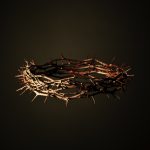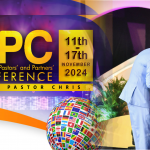
A vibrant display of various fruits under a bright sun.
As Apostle Paul stated, “Now food [itself] will not cause our acceptance by God nor commend us to Him. Eating [food offered to idols] gives us no advantage; neither do we come short or become any worse if we do not eat [it].” (1Co 8:8, AMPC)
Ceremonial foods or foods approved by the law fall in the same category as the sabbath—so using Paul’s language, we can say, “Now the Sabbath [itself] will not cause our acceptance by God nor commend us to Him. Observing the Sabbath gives us no advantage; neither do we come short or become any worse if we do not observe [it].”
The above was written to the church in Corinth. But if we want a straightforward scripture, then let’s consult the letter to the church in Colossae.
Col 2:16-17 (AMPC)
16 Therefore let no one sit in judgment on you in matters of food and drink, or with regard to a feast day or a New Moon or a Sabbath.
17 Such [things] are only the shadow of things that are to come, and they have only a symbolic value. But the reality (the substance, the solid fact of what is foreshadowed, the body of it) belongs to Christ.
The Apostle Paul says nobody should feel bad or allow anybody to judge them just because they do not celebrate or observe …
-
a feast day
-
or a New Moon
-
or a Sabbath.
What were the feasts?
-
Passover — Leviticus 23:4-8
-
Feast of Unleavened Bread — Leviticus 23:6
-
Feast of Firstfruits — Leviticus 23:10
-
Feast of Weeks or Pentecost — Leviticus 23:16
-
Feast of Trumpets — Leviticus 23:24
-
Day of Atonement — Leviticus 16, 23:26-32
-
Feast of Tabernacles or Booths — Leviticus 23:34
In Col 2:16-17, Apostle Paul says that no one should feel guilty or allow anybody to sit in judgment over them if they do not observe any of the above feasts as the Jews do physically—neither should they feel bad or allow anybody to sit in judgement over them if they do not observe a New Moon or a Sabbath. Paul put these three together.
The Council of Jerusalem in Acts 15 affirmed this thought by Paul when they required only three things from Gentiles—and they did not require Gentile Christians to observe the physical Sabbath, any feasts, or the new moon. If the Sabbath were a bona fide requirement for Gentiles, the Council of Jerusalem would’ve asked the Gentile Christians to keep it. They did not, and that speaks volumes.
The reasons for Apostle Paul’s position and that of the Council are found in the very next verse.
17 (AMPC) Such [things] are only the shadow of things that are to come, and they have only a symbolic value. But the reality (the substance, the solid fact of what is foreshadowed, the body of it) belongs to Christ.
Col 2:16-17 (TPT)
16 So why would you allow anyone to judge you because of what you eat or drink, or insist that you keep the feasts, observe new moon celebrations, or the Sabbath?
17 All of these were but a prophetic shadow and the evidence of what would be fulfilled, for the body is now Christ!
Col 2:16-17 (NKJV)
16 So let no one judge you in food or in drink, or regarding a festival or a new moon or sabbaths,
17 which are a shadow of things to come, but the substance is of Christ.
WHAT DID HE MEAN BY “SUCH THINGS?”
The previous verse lets us know what Apostle Paul was referring to:
-
a feast day
-
or a New Moon
-
or a Sabbath.
WHAT DID HE MEAN BY “A SHADOW?”
A shadow is not the reality. It is unreality. Paul said, “such things” are a shadow. A shadow is a shade, the effect of interception of sunlight; dark image cast by someone or something when interposed between an object and a source of light.
These three things are only the shadow of things to come and have only a symbolic value. But the reality (the substance, the solid fact of what is foreshadowed, the body of it) belongs to Christ.
The etymology of the word shadow agrees with the scripture. It says that a shadow was anything unreal. Paul said, “These three things are only the shadow of things that are to come, and they have only a symbolic value. But the reality (the substance, the solid fact of what is foreshadowed, the body of it) belongs to Christ.
Reality is Aletheia or Truth. Your shadow is not the real you.
WHAT DID HE MEAN BY “THINGS THAT ARE TO COME”?
He meant that when looking from the Old Covenant, the three things he listed foreshadowed something real that was yet to come in the future, but in the New Covenant, the things they foreshadowed had been fulfilled in Christ Jesus and His Church.
SHADOWS AND REALITIES
Suppose we must honor the Sabbath as the Jews did as a physical observance. In that case, we in the New Testament should also observe all the other feasts and the New Moon because they were also ordinances. But Nay! We do not keep the physical Passover or other feasts because they find their fulfilment or reality in Christ and His Body.
1Co 5:7 (AMPC) … for Christ, our Passover [Lamb], has been sacrificed.
Christ is our Passover so we do not need to keep a physical passover. We do not need to observe the feasts, the new moon and the sabbath because all of these were part of the Law, and Jesus Christ fulfilled the entire law. These shadows all find their reality or fulfilment in Christ. He is the fulfilment of the feast for us, the fulfilment of the New Moon by giving the world a reset or new beginning, and He is our Sabbath Rest.
From Hebrews 3:7–4:13, the author points to the story of the ancient Israelites wandering in the wilderness as a lesson for the first-century believers he’s addressing. He reminds his readers that God did not allow an entire generation into Canaan (the Promised Land) because of their lack of faith. “They were unable to enter because of unbelief” (Heb. 3:19). The writer cites Psalm 95, which describes Canaan as God’s rest.
He adds the following, which defines a sabbath-rest for a New Testament believer:
Heb 4:9-10 (AMPC)
9 So then, there is still awaiting a full and complete Sabbath-rest reserved for the [true] people of God;
10 For he who has once entered [God’s] rest also has ceased from [the weariness and pain] of human labors, just as God rested from those labors peculiarly His own. [Gen 2:2]
First, the author states:
-
They were unable to enter because of unbelief” (Heb. 3:19)—meaning the only thing that keeps one from the true Sabbath is a lack of faith.
-
He then states that currently, there is still awaiting a full and complete Sabbath-rest reserved for the [true] people of God
How does one access it, then? Through Faith! There’s no other way, and especially not by observing days because Jesus is the way, and one must have faith in Him:
Gal 4:10-11 (NKJV)
10 You observe days and months and seasons and years.
11 I am afraid for you, lest I have labored for you in vain.
WHAT IS REALITY?
… the reality (the substance, the solid fact of what is foreshadowed, the body of it) belongs to Christ
“Jesus saith unto him, I am the way, the truth, and the life: no man cometh unto the Father, but by me.” (Jhn 14:6, KJV)
The word translated as “truth” is alētheia. It is defined as truth or reality. Truth or reality is the unveiled reality lying at the basis of and agreeing with an appearance; the manifested, the veritable essence of matter.
Jesus is Truth. He is the Word, so the Word is Truth or Reality. Everything outside God’s Word is unreality or a lying vanity.
Jhn 17:17 (KJV) Sanctify them through thy truth: thy word is truth.
The Amplified Classic translation defines truth as the substance, the solid fact of what is foreshadowed, the body of it.
DEFINING THE TRUE/REAL SABBATH
What is this Sabbath, then? It depends on whether you’re standing in the Old or New Testament. In the Old Testament, it is marked by the cessation of work from sundown on Friday till sundown on Saturday. It is derived from the principle that God rested on the 7th day.
How about in the New Testament? Paul said the way the Jews observed it was only a shadow of a reality. What, therefore, is the reality?
What does it look like for a New Testament saint to observe the Sabbath? How would I know if I am living in the reality of the Sabbath? What does the reality of the Sabbath look like? It’s stated in the following verses of scripture:
Heb 4:9-10 (AMPC)
9 So then, there is still awaiting a full and complete Sabbath-rest reserved for the [true] people of God;
10 For he who has once entered [God’s] rest also has ceased from [the weariness and pain] of human labors, just as God rested from those labors peculiarly His own. [Gen 2:2]
Many people rely on their human labors for different things, including righteousness. When their human works are good, they believe they are closer to God and accepted by Him. When their human works are bad, they believe they are far away from God and may be rejected by God. These not knowing the scriptures haven’t ceased from their human labors as a means of attaining acceptance, righteousness, intimacy, and oneness with God. These human labors are referred to in scripture as dead works.
No wonder in chapter 6 of the same book, the first foundation of the doctrine of Christ that is laid is repentance from dead works. In verse 10 of chapter 4, Paul tells us he who has once entered [God’s] rest also has ceased from [the weariness and pain] of human labors, just as God rested from those labors peculiarly His own. When we trust or have faith in His finished works and stop relying on our own works, we have entered the true sabbath made possible by the fulfilment of the true Passover. We enter the rest not by anything physical but by faith. Remember how they failed to enter the real sabbath? It was because of their unbelief, lack of faith or unpersuadableness.
Heb 3:19 (NKJV) So we see that they could not enter in because of unbelief.
Heb 3:19 (Weymouth) And so we see that it was owing to lack of faith that they could not be admitted.
Anyone who will exercise faith enters the Sabbath-Rest. Faith is the second foundation layer.
Heb 6:1 (AMPC) THEREFORE LET us go on and get past the elementary stage in the teachings and doctrine of Christ (the Messiah), advancing steadily toward the completeness and perfection that belong to spiritual maturity. Let us not again be laying the foundation of
-
repentance and abandonment of dead works (dead formalism) and
-
of the faith towards God or the faith of God
Heb 4 – 6 actually speak about the life of the NT saint and how they enter the true Sabbath. The shadow sabbath is not the real sabbath but a shadow pointing to the real.
Jesus Christ and his disciples flouted the rules of the physical Sabbath multiple times, and when he was queried, his answer was:
Mrk 2:24-27 (AMPC)
24 And the Pharisees said to Him, Look! Why are they doing what is not permitted or lawful on the Sabbath?
27 And Jesus said to them, The Sabbath was made on account and for the sake of man, not man for the Sabbath; [Exo 23:12; Deu 5:14]
28 So the Son of Man is Lord even of the Sabbath.
This was his way of showing them that the physical observance of a particular day was not what commended them to God. He was showing them that “Now the Sabbath [itself] will not cause our acceptance by God nor commend us to Him. Observing the Sabbath gives us no advantage; neither do we come short or become any worse if we do not observe [it].” He showed that there was a higher way but they could not see it because their traditions, including traditions of the sabbath, made the word of God of no effect for them.





